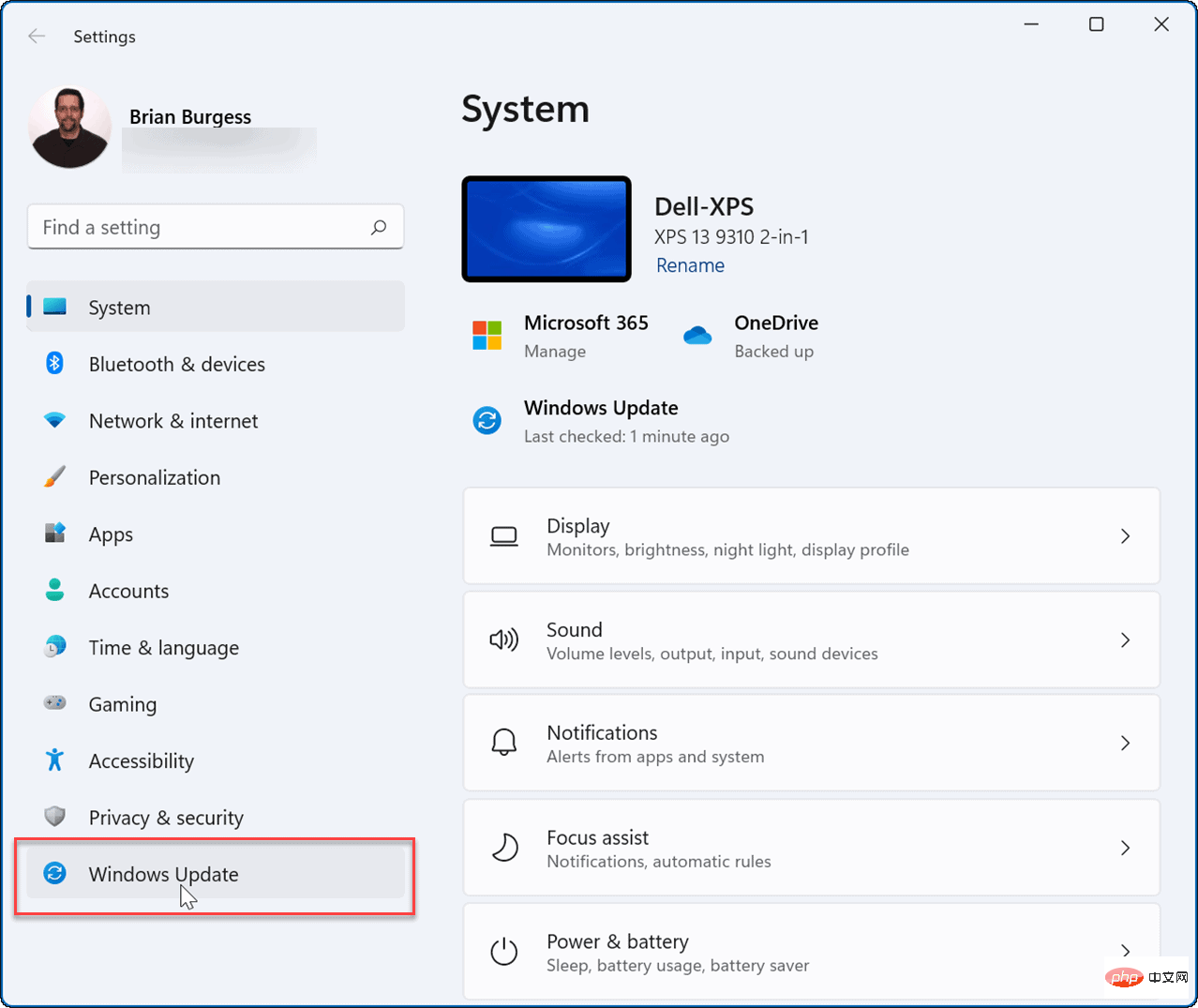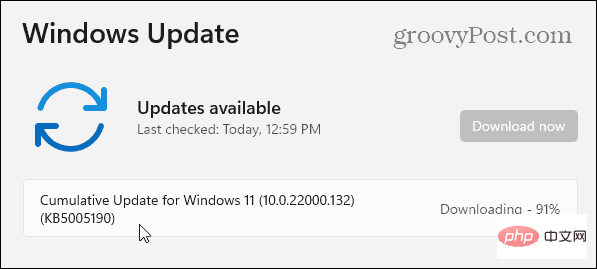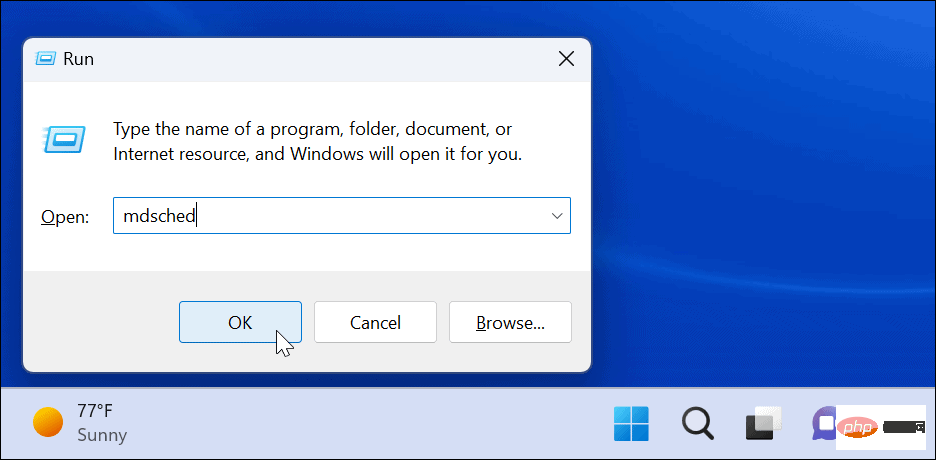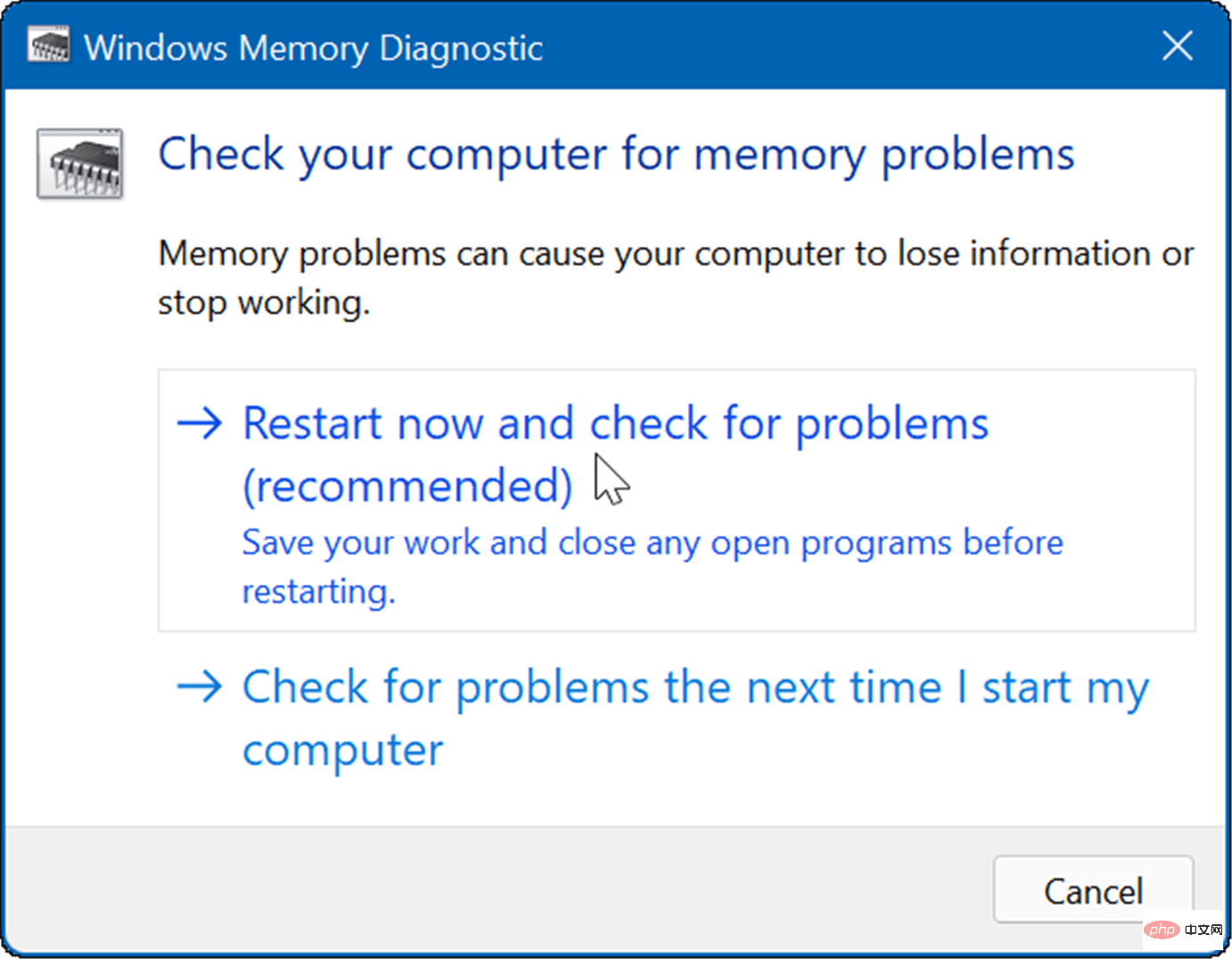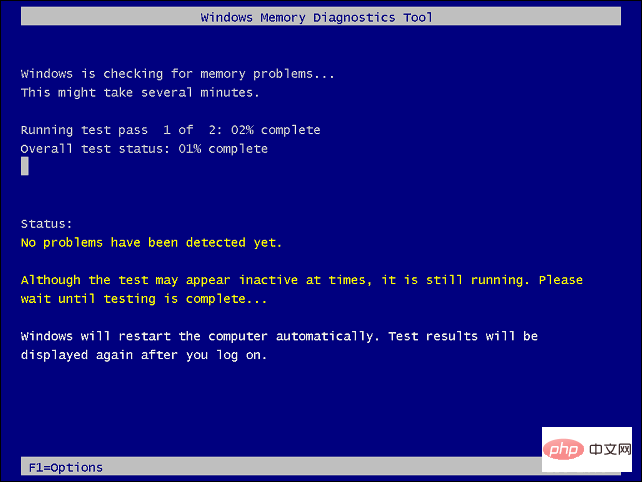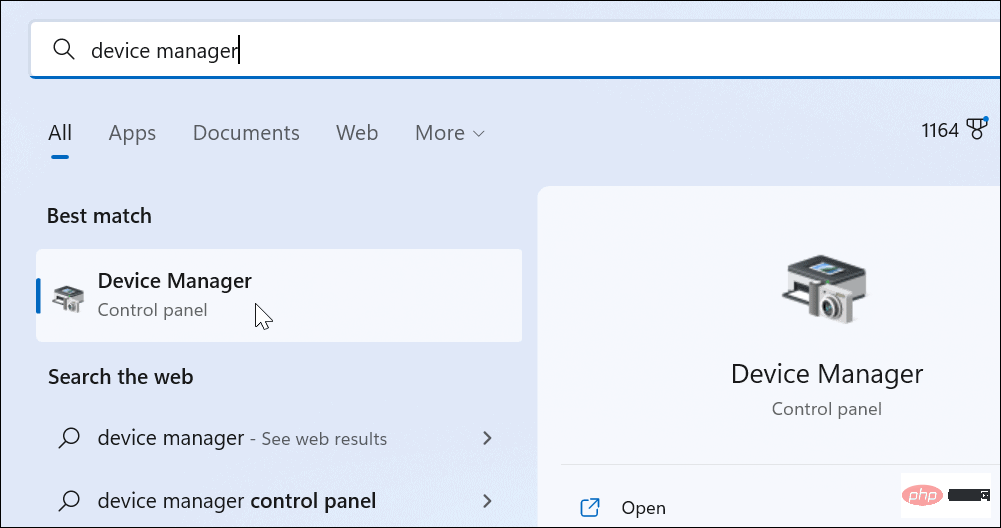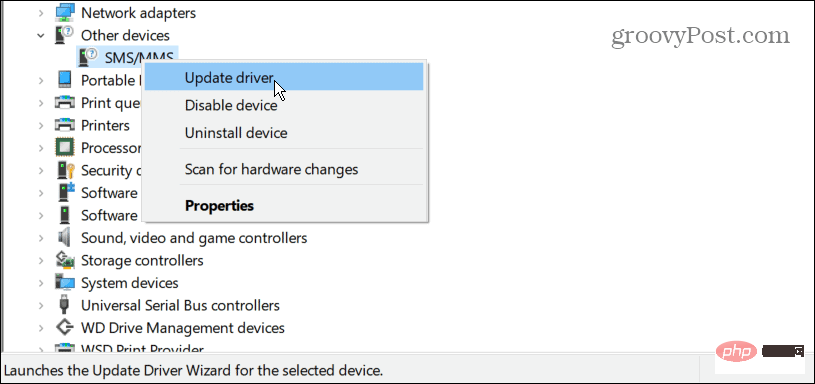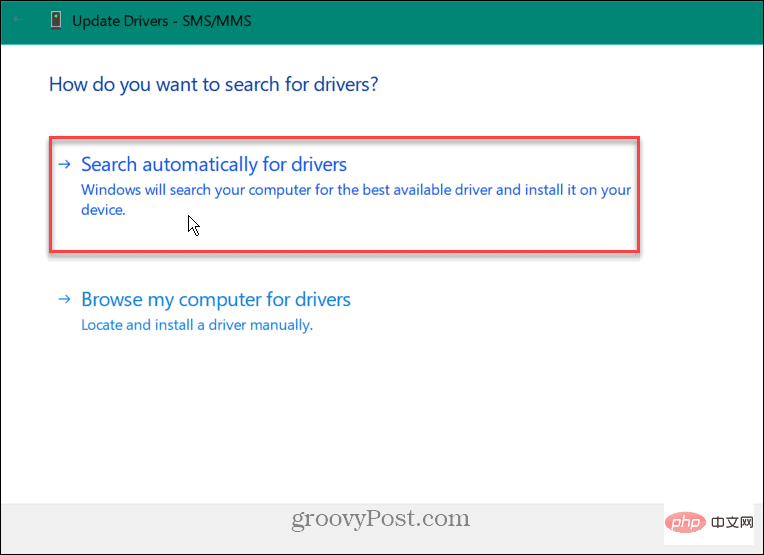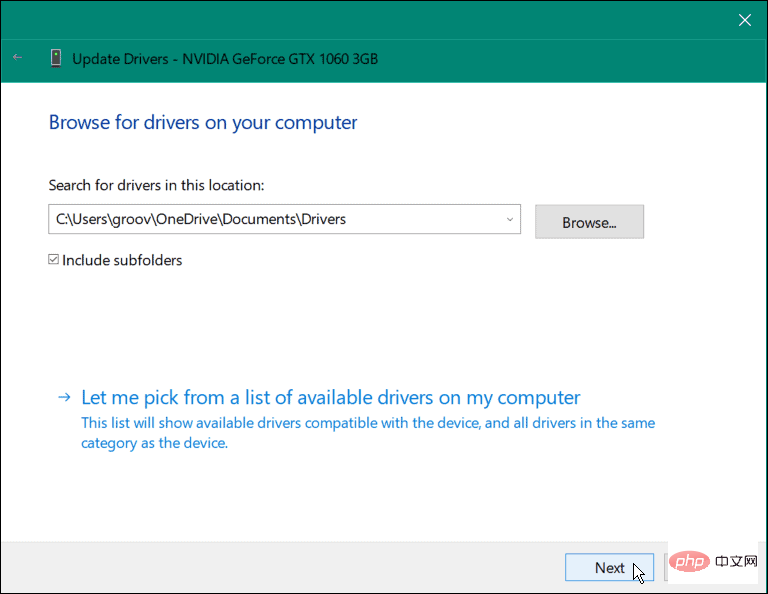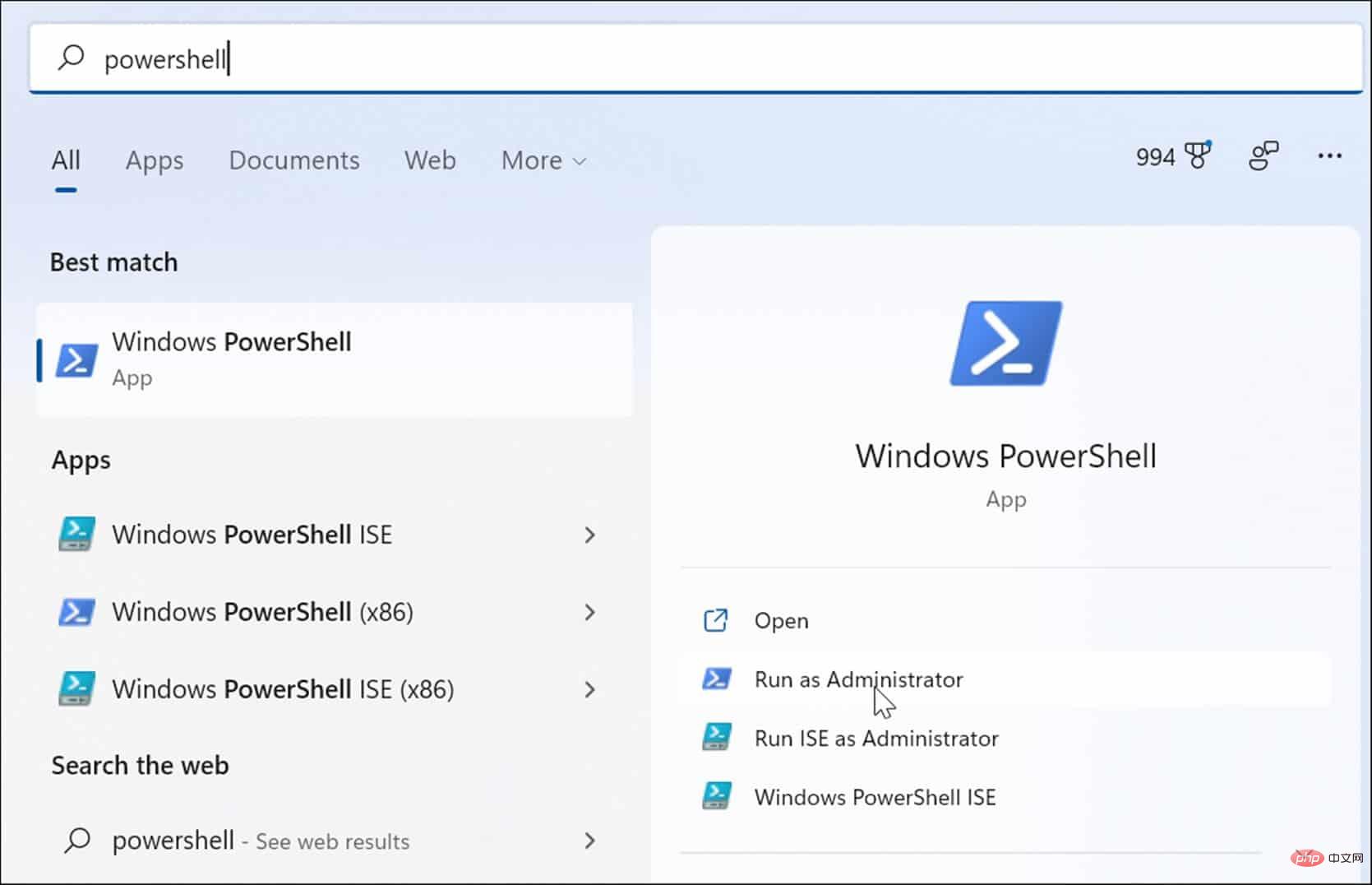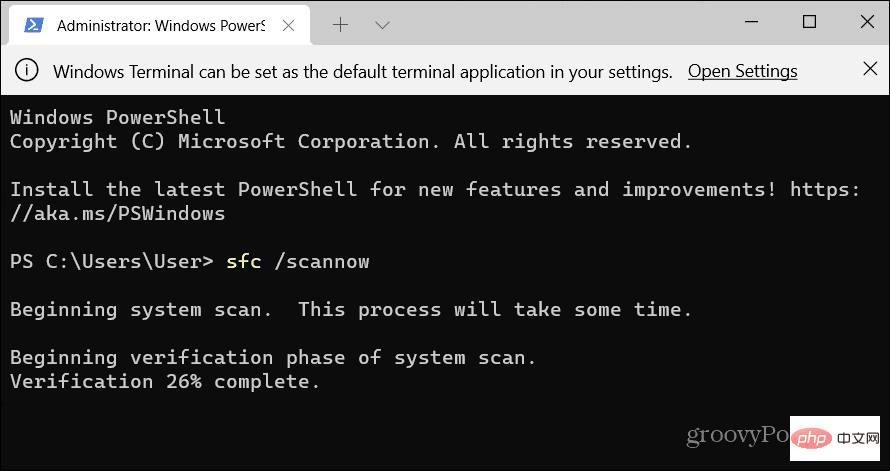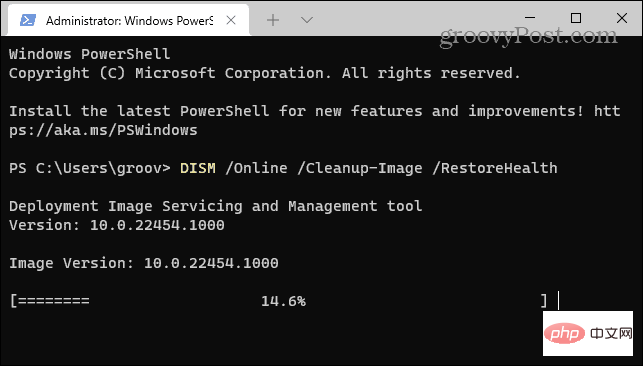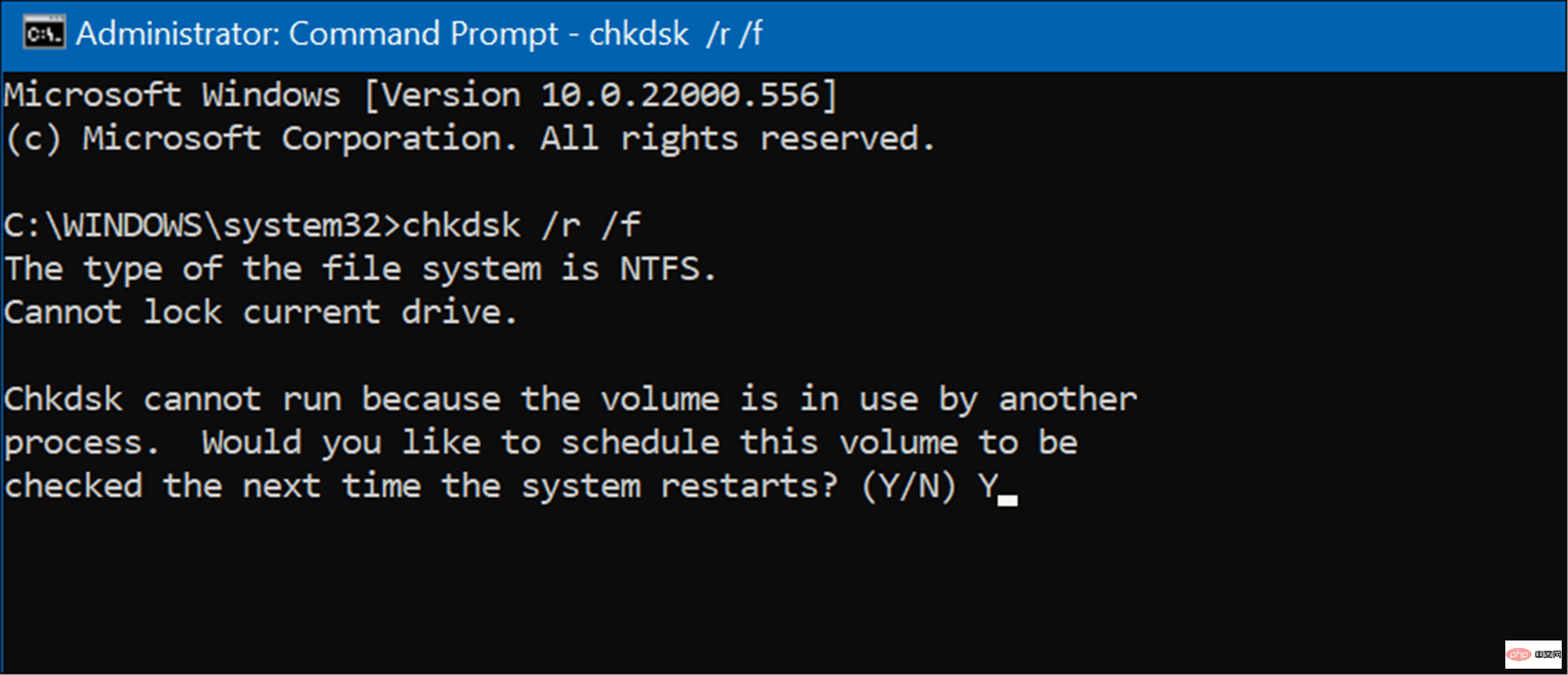How to fix clock watchdog timeout on Windows
When you get a Blue Screen of Death (BSOD) error when booting your PC, you might think your system is done. But there's no need to panic.
Clock_Watchdog_Timeout BSOD errors are related to issues with communication between your system and the CPU. This is a system-level process called "system interrupt" and is normal behavior. However, if your system spends too long in the interruption phase, a blue screen error will occur.
You may be able to resolve the issue with a simple reboot, or you may need to perform additional troubleshooting steps from the command line. So, here’s how to fix clock watchdog timeout on Windows.
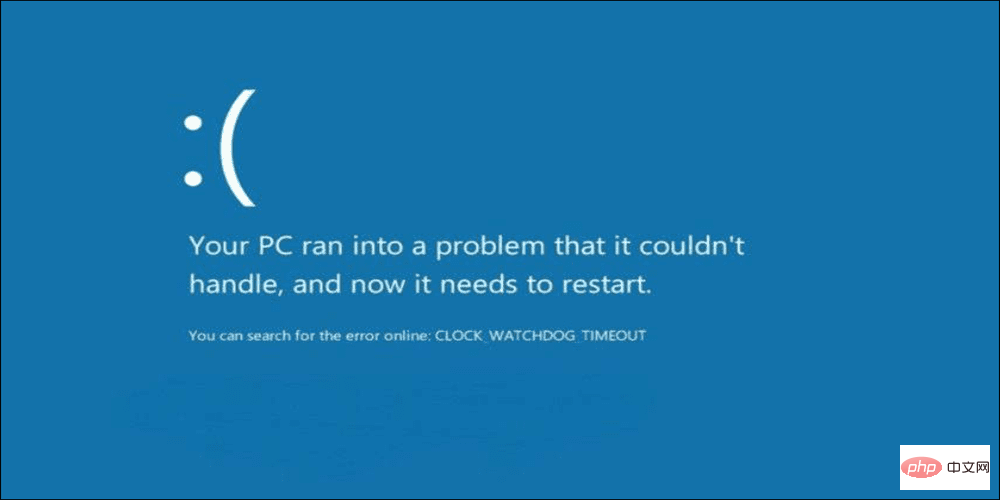
Restart your PC
The first time you get a clock watchdog timeout BSOD on Windows, the first step is to reboot the system and reinstall the external equipment. Since BSOD errors prevent you from entering the Windows environment, you need to hold down the physical power button for 10 seconds until your PC shuts down completely.
Unplug all peripherals connected to your PC, such as mouse, keyboard, printer, and monitor. If you have a desktop, reinstall the RAM, SSD (if applicable), and GPU, and check for loose cables. Reconnect all external devices to ensure secure connections. Wait 30 to 60 seconds, then press the Power button again to restart.

Check for Windows Updates
Windows usually updates in the background; however, you may not have the latest updates. For example, a pending update might contain a bug fix that your PC is waiting for.
Do the following to get pending updates:
- Click the Windows key IOpen Settings and select Windows Update.

- Click the Check for Updates button and install any updates it finds. A reboot may be required to complete the process.

Run the Windows Memory Diagnostic Utility
Memory problems can cause errors that you need to scan for errors. You can check your system's RAM by running Microsoft's built-in Windows Memory Diagnostic utility.
To run the Windows Memory Diagnostic Utility, do the following:
- Press Windows key ROpen "Run ”Dialog box.
- Type mdsched and click OK.

- When the Windows Memory Diagnostic Tool opens, click the Restart now and check for problems option.

- Your PC will restart and the utility will run a diagnostic scan of your system RAM. If any issues are detected, the diagnostic tool will automatically fix the issues it finds.

NOTE: This utility will take a long time to run. If it doesn't find the problem but you need a second opinion, try the free and open source utility memtest86.
Manage Hardware Drivers
Updating hardware drivers can fix a range of issues, including clock watchdog timeout errors. You are supposed to receive driver updates through Windows Update, but sometimes problems can occur. However, you can have Windows search for specific hardware drivers or install them yourself.
To manually check for driver updates, use the following steps:
- Press the Windows key or click the Start button.
- Type Device Manager and click the Device Manager Control Panel option under Best Match.

- Check the list for any yellow error indicators. If found, right-click on the listed device and select Update Driver from the menu.

- Select Automatically search for drivers and let Windows update drivers automatically.

- If the Watchdog error persists and Windows does not find the driver, you can install the driver manually.

Run DISM and SFC scans
Run DISM and SFC scans to fix BSOD errors. Both utilities scan for corrupted system files and replace them with working files. System File Checker(SFC)The scan finds file errors and replaces corrupted files with working files stored on the drive.
Deployment Image Servicing and Management (DISM)The scan will detect errors and replace corrupted files with working files downloaded directly from Microsoft servers.
To run SFC and DISM scans:
- Click the Start button or press the Windows key and search for PowerShell.
- Select the Run as administrator option to the right of the results.

- After opening PowerShell, run the following command in the terminal.
sfc /scannow
Copy after login ##After a
##After a - SFC scan, a best practice is to run a DISM scan - especially if SFC cannot replace a specific file .
- Run PowerShell as Administrator and run the following commands.
DISM /Online /Cleanup-Image /RestoreHealth
Copy after login
Chkdsk utility will scan the hard drive to make sure it is error-free.
To run a Chkdsk scan:
- Launch
- PowerShell Terminal as Administrator Or Command Prompt. Run the following command and press
- Enter.
chkdsk /r /f
Copy after loginThe ChkDsk utility will prompt you to scan the next time you reboot - type - Y and press Enter.

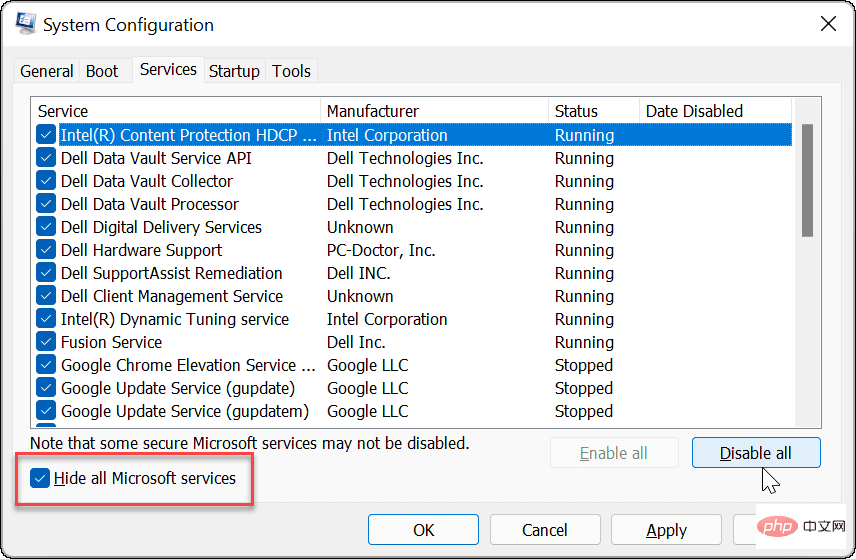
Advanced Boot Options, make sure you select Enable Safe Mode with Command Prompt. You can start Command Prompt in safe mode and run utilities such as ChkDsk, SFC, and DISM scanning by selecting this option.
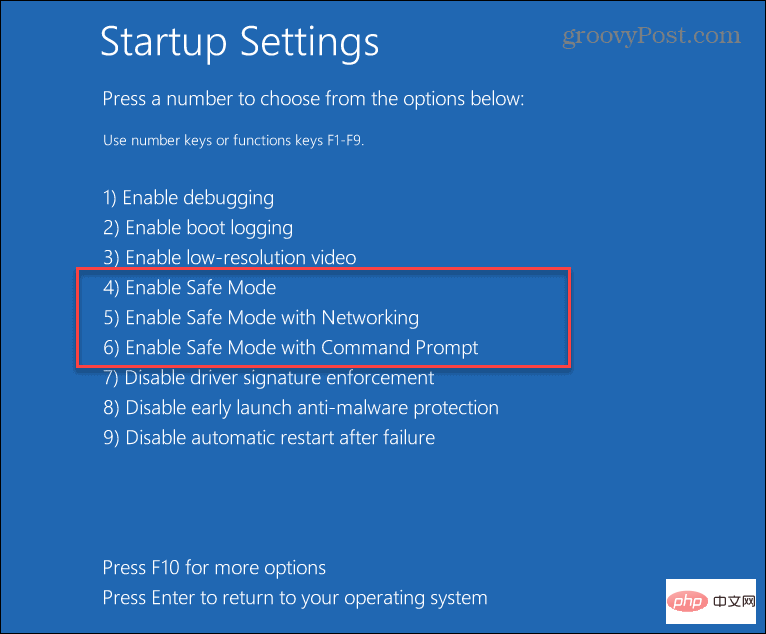
If all else fails, you can reset Windows to factory settings—but only as a last resort. Before resetting Windows, back up all necessary files to a cloud service like OneDrive or a paid service like BackBlaze. Additionally, create a complete system backup so you can restore your system quickly.
The above is the detailed content of How to fix clock watchdog timeout on Windows. For more information, please follow other related articles on the PHP Chinese website!

Hot AI Tools

Undresser.AI Undress
AI-powered app for creating realistic nude photos

AI Clothes Remover
Online AI tool for removing clothes from photos.

Undress AI Tool
Undress images for free

Clothoff.io
AI clothes remover

AI Hentai Generator
Generate AI Hentai for free.

Hot Article

Hot Tools

Notepad++7.3.1
Easy-to-use and free code editor

SublimeText3 Chinese version
Chinese version, very easy to use

Zend Studio 13.0.1
Powerful PHP integrated development environment

Dreamweaver CS6
Visual web development tools

SublimeText3 Mac version
God-level code editing software (SublimeText3)

Hot Topics
 1385
1385
 52
52
 How to convert XML to PDF on your phone?
Apr 02, 2025 pm 10:18 PM
How to convert XML to PDF on your phone?
Apr 02, 2025 pm 10:18 PM
It is not easy to convert XML to PDF directly on your phone, but it can be achieved with the help of cloud services. It is recommended to use a lightweight mobile app to upload XML files and receive generated PDFs, and convert them with cloud APIs. Cloud APIs use serverless computing services, and choosing the right platform is crucial. Complexity, error handling, security, and optimization strategies need to be considered when handling XML parsing and PDF generation. The entire process requires the front-end app and the back-end API to work together, and it requires some understanding of a variety of technologies.
 What is the reason why PS keeps showing loading?
Apr 06, 2025 pm 06:39 PM
What is the reason why PS keeps showing loading?
Apr 06, 2025 pm 06:39 PM
PS "Loading" problems are caused by resource access or processing problems: hard disk reading speed is slow or bad: Use CrystalDiskInfo to check the hard disk health and replace the problematic hard disk. Insufficient memory: Upgrade memory to meet PS's needs for high-resolution images and complex layer processing. Graphics card drivers are outdated or corrupted: Update the drivers to optimize communication between the PS and the graphics card. File paths are too long or file names have special characters: use short paths and avoid special characters. PS's own problem: Reinstall or repair the PS installer.
 xml online formatting
Apr 02, 2025 pm 10:06 PM
xml online formatting
Apr 02, 2025 pm 10:06 PM
XML Online Format Tools automatically organizes messy XML code into easy-to-read and maintain formats. By parsing the syntax tree of XML and applying formatting rules, these tools optimize the structure of the code, enhancing its maintainability and teamwork efficiency.
 How to solve the problem of loading when PS is always showing that it is loading?
Apr 06, 2025 pm 06:30 PM
How to solve the problem of loading when PS is always showing that it is loading?
Apr 06, 2025 pm 06:30 PM
PS card is "Loading"? Solutions include: checking the computer configuration (memory, hard disk, processor), cleaning hard disk fragmentation, updating the graphics card driver, adjusting PS settings, reinstalling PS, and developing good programming habits.
 How to speed up the loading speed of PS?
Apr 06, 2025 pm 06:27 PM
How to speed up the loading speed of PS?
Apr 06, 2025 pm 06:27 PM
Solving the problem of slow Photoshop startup requires a multi-pronged approach, including: upgrading hardware (memory, solid-state drive, CPU); uninstalling outdated or incompatible plug-ins; cleaning up system garbage and excessive background programs regularly; closing irrelevant programs with caution; avoiding opening a large number of files during startup.
 Does H5 page production require continuous maintenance?
Apr 05, 2025 pm 11:27 PM
Does H5 page production require continuous maintenance?
Apr 05, 2025 pm 11:27 PM
The H5 page needs to be maintained continuously, because of factors such as code vulnerabilities, browser compatibility, performance optimization, security updates and user experience improvements. Effective maintenance methods include establishing a complete testing system, using version control tools, regularly monitoring page performance, collecting user feedback and formulating maintenance plans.
 The XML file is too large, can I convert PDFs on my phone?
Apr 02, 2025 pm 09:54 PM
The XML file is too large, can I convert PDFs on my phone?
Apr 02, 2025 pm 09:54 PM
It is difficult to directly convert super large XML to PDF on mobile phones. It is recommended to adopt a partition strategy: cloud conversion: upload to the cloud platform and processed by the server. It is efficient and stable but requires network and possible payment; segmented processing: Use programming tools to split large XML into small files and convert them one by one, requiring programming capabilities; find conversion tools that specialize in processing large files, pay attention to checking user reviews to avoid choosing software that is prone to crash.
 How to convert XML to PDF on Android phone?
Apr 02, 2025 pm 09:51 PM
How to convert XML to PDF on Android phone?
Apr 02, 2025 pm 09:51 PM
Converting XML to PDF directly on Android phones cannot be achieved through the built-in features. You need to save the country through the following steps: convert XML data to formats recognized by the PDF generator (such as text or HTML); convert HTML to PDF using HTML generation libraries such as Flying Saucer.



